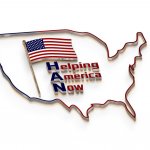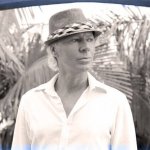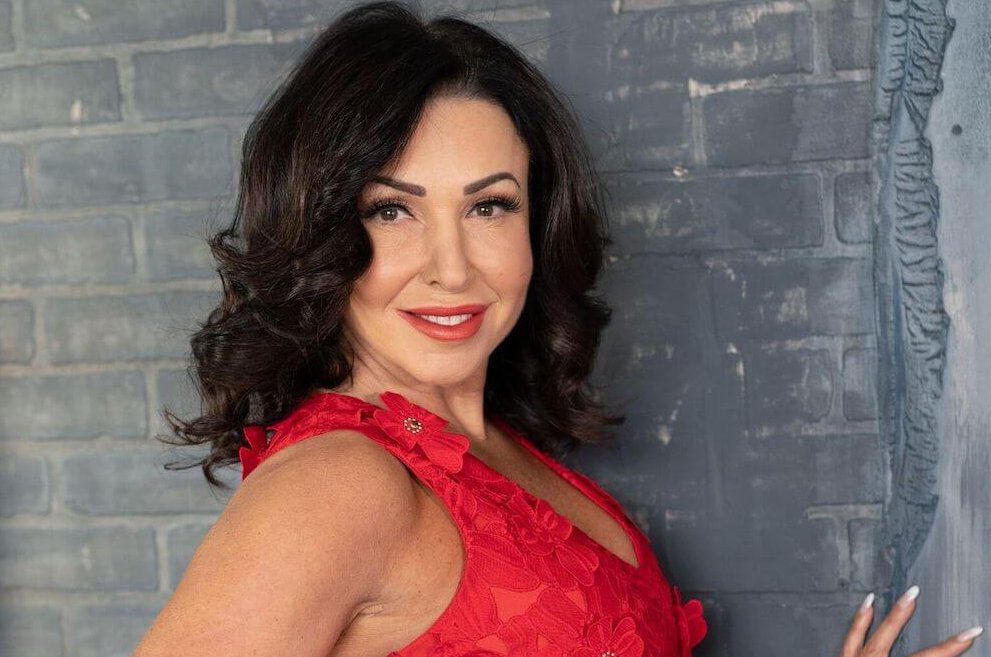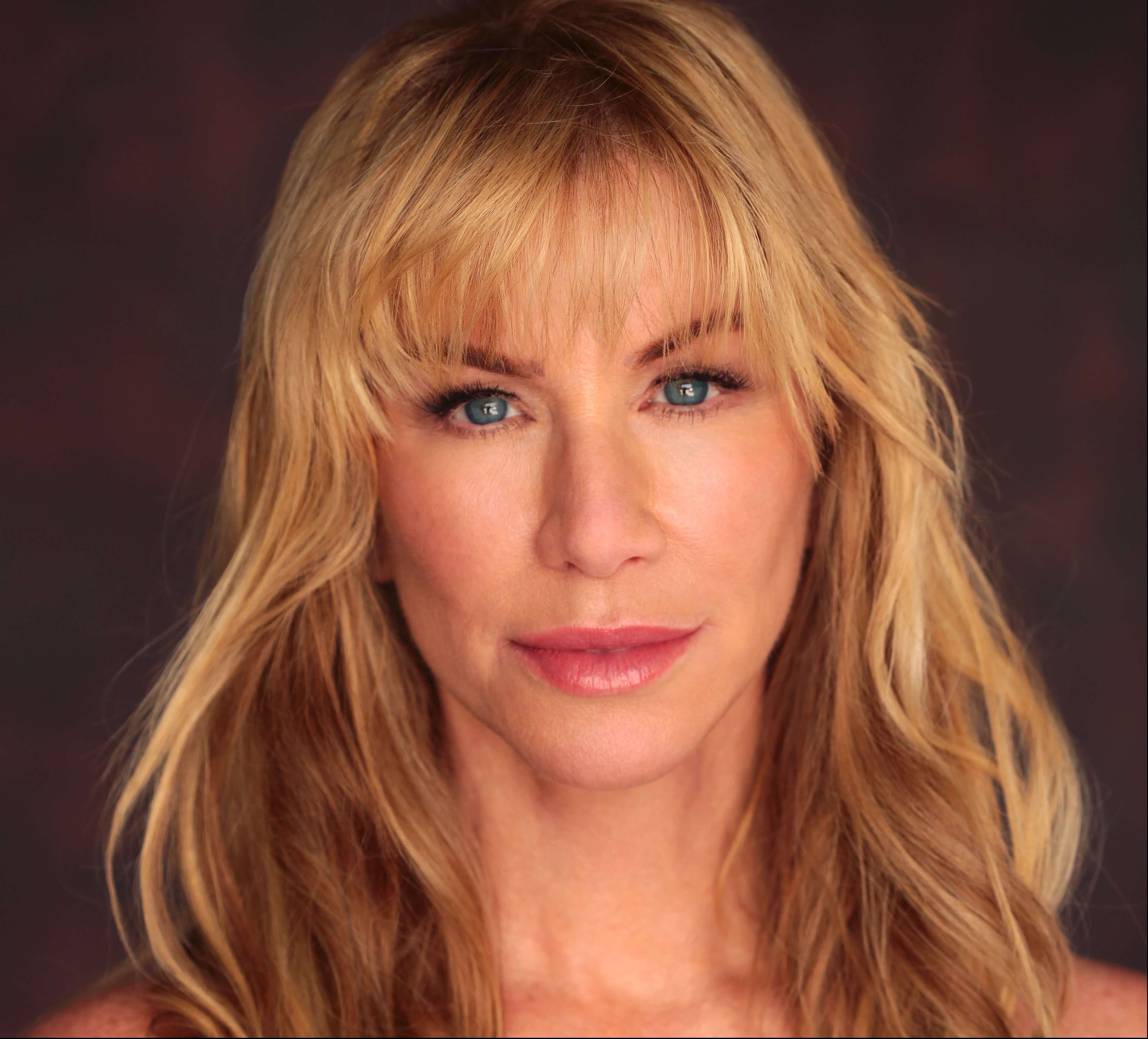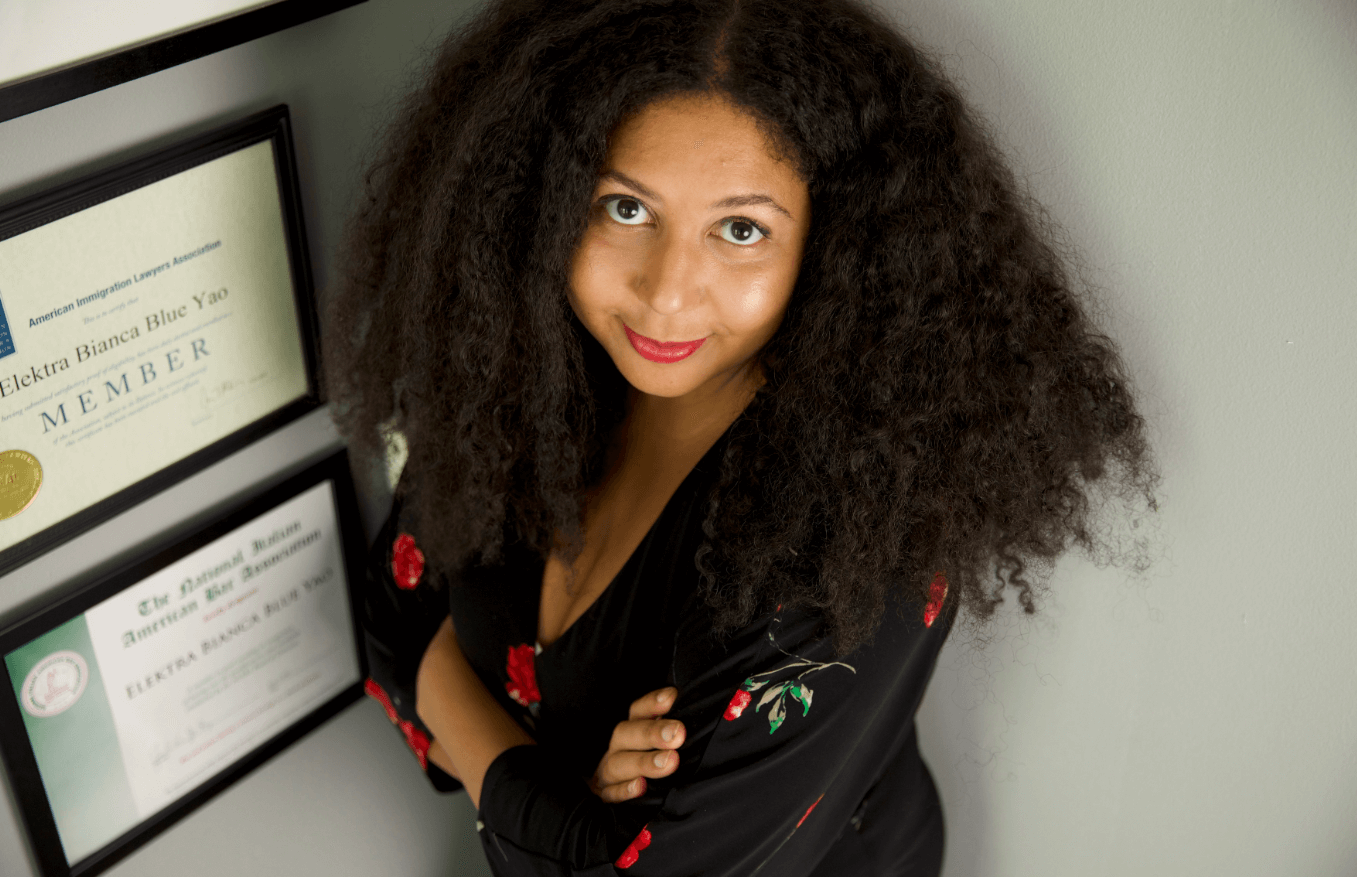Interview: Scott Page: “Think: EXP” “The Grand Scientific Musical Theater”
Outwardly known to the universe as the saxophonist/guitarist for Pink Floyd, Supertramp, and Toto, Scott Page is so much more than a musician and performer. He’s also an entrepreneur and a technical phenomenon, serving as CEO for a master project called “Think: EXP”. It’s based in Los Angles and described by Scott as “a live immersive media company,” with technology so advanced you might imagine it’s alien driven.
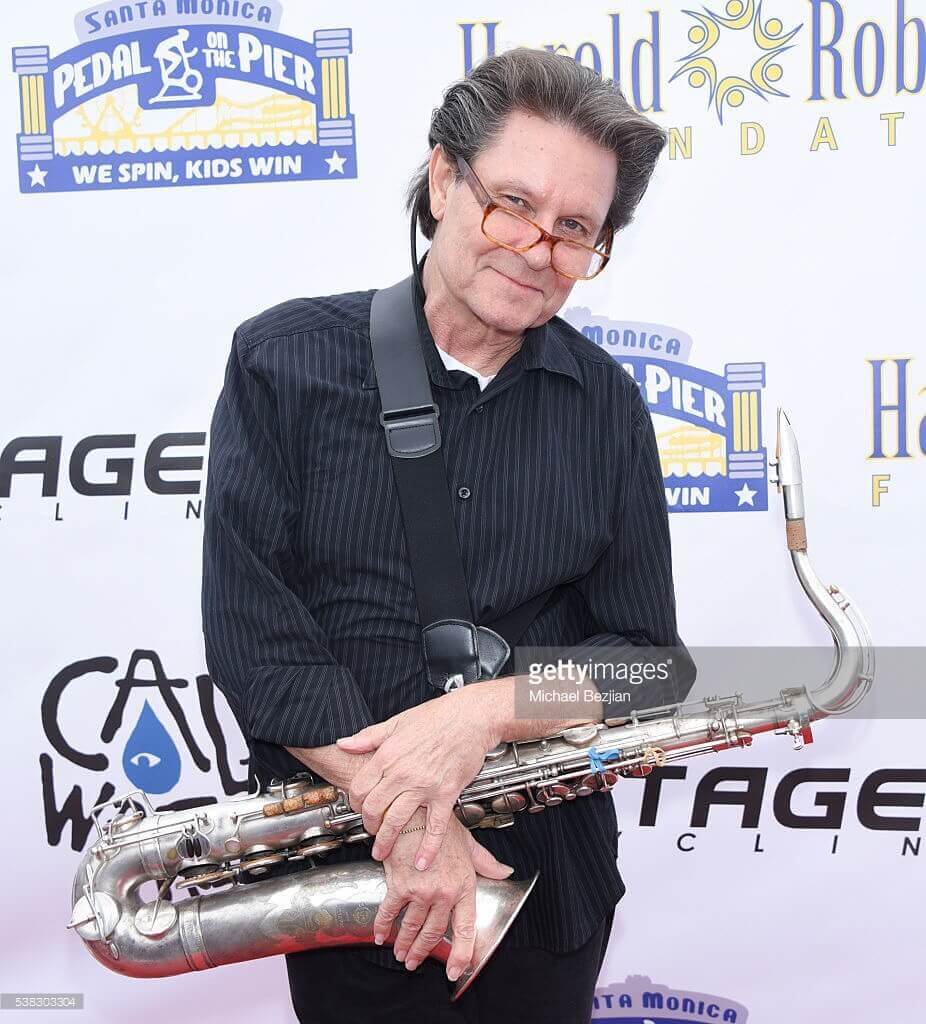
Scott has also created “Walt Tucker Productions”, a post-production company including projects for the Rolling Stones, Bon Jovi, Janet Jackson, Garth Brooks, Scorpions and several others. He also produced “Tuneland”, an award-winning CD-ROM game and educational software company via 7th Level. “Tuneland is the world’s first interactive musical cartoon.
Aside from all that, Scott is frequently invited as a guest lecturer and panelist at numerous new media conference. He’s also a featured guest mentor on over 150 episodes of the weekly syndicated radio show, “Business Rockstars”, hosted by Ken Rutkowski.

With so much going on I was extremely fortunate enough to meet Scott at a Pre-Oscar Soirée in Los Angeles, and fell instantly intrigued and infatuated. Never knowing what a technological powerhouse lurked behind the cool, easy going, Pink Floyd multi-instrumental genius, I felt compelled to have a conversation with him. Still trying to wrap my head around “Think: EXP”, the newest, and most innovative, domed, virtual reality (minus the glasses), live Rock celebration currently on the planet, I decided to let Scott explain……and that he did with the confidence of an avalanche, the persuasiveness of a tsunami, and the paramount importance of a raging hurricane….
I don’t even know where to start…
Let me give you a bit of background, an overview of what’s going on. I’ve been kind of a serial entrepreneur and tech guy for quite a few years, with a handful of companies in the tech space. I took one of them public – 7th Level – where I produced the world’s first interactive cartoon called “Tuneland” back in the day.
I’ve always sort of been the guy bridging the gap between technology and entertainment. That’s what I’ve been doing for the last bunch of years. One of the things we’re doing now with our new company involves another organization called Ignited Network. It’s a mobile messaging and media platform. We’re incorporating it into my own new company “Think: EXP”.
Our first experience is Pink Floyd — the Pink Floyd experience. We will do a number of these things — probably Bowie, Jimi Hendrix, a variety of different shows, all in this new immersive entertainment space. I think the future is definitely here now.
We have the three main drivers that now make it all possible: bandwidth storage and horsepower, meaning the power on today’s computers. These new factors have all hit at the same time. The cost of computing has dropped so much, with so many new things happening, that people are constantly bombarded with media and social media.
The next wave is the type of truly immersive experience we’re developing. In fact, our first live experience is in a 360° immersive dome — like VR without glasses. We’re doing Pink Floyd music with an all-star band. I’ve got Stephen Perkins from Jane’s Addiction, he’s the drummer. I’ve got John Norwood Fisher from Fishbone, bass player. And Kenny Olsen, who started Kid Rock. Plus Roberta Friedman, who did Pink Floyd with me. Then we bring in a slew of guests.
We’ve sold out all 10 shows so far and it all keeps growing. It’s absolutely wild — one of the craziest experiences ever. We’re doing it April 5/6, April 26/27 and May 17/18 again.
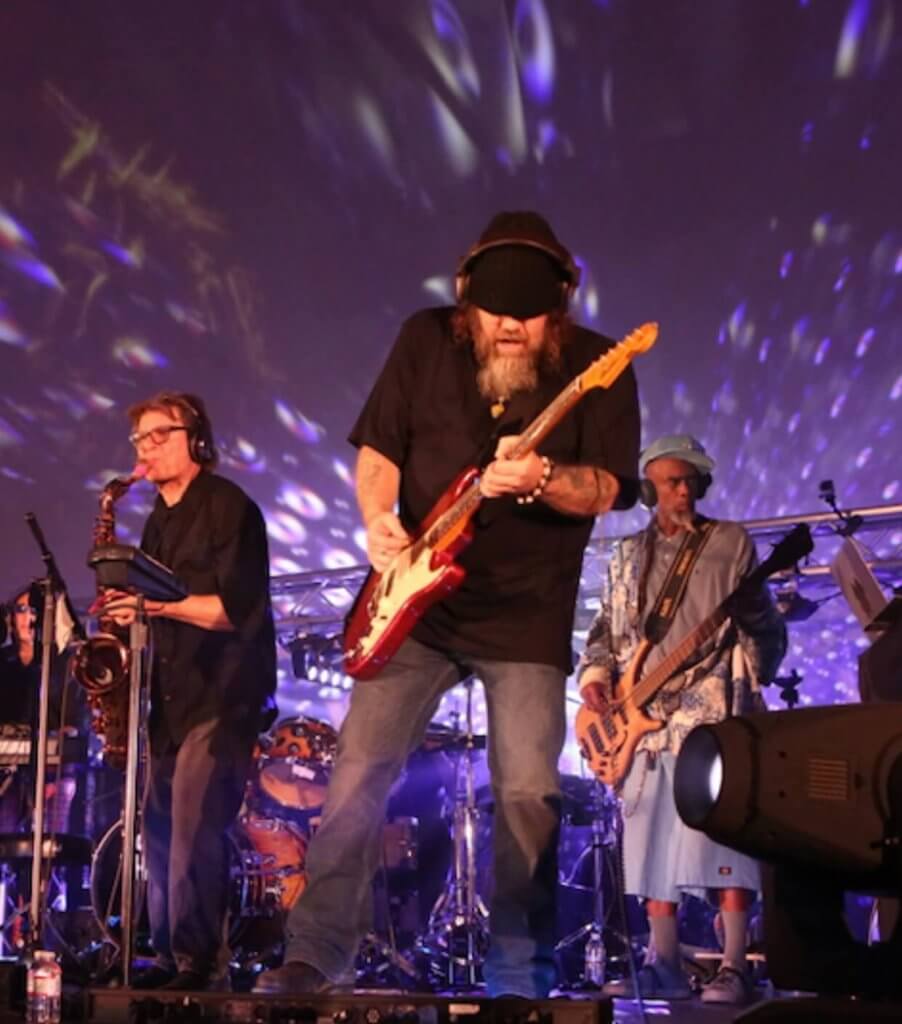
This is amazing and impressive …
The whole thing I’m doing with “Think: EXP” is, I’m building a platform. It consists of both the technology and live stack in order to put on these immersive shows, but then it’s all tied into an online platform — a subscription product and business. Actually, we’re creating a whole new business model. People ask, “is this a tribute band?” I tell them “no it’s a business model.” We are really trying to reinvent the entire space.
You know you can’t sell music anymore. So what do you sell? The two things you still can actually sell as an artist today is, first, the relationship. People want to get close to their artists. There are ways you can create subscription products and stuff to get someone closer to the artist. The second offering is a live experience. We’re basically building a whole strategy that’s kind of like Cirque du Soleil … meets Ted Talks … meets Burning Man!
It’s really combining all that while being in the midst of designing the three trucks that will house all the digital circus technology along with traveling domes. We’ll go into cities, set up for a month or so and people will come in. It’s like running a traveling circus that’s actually called “The Grand Scientific Musical Theater.”
You’re my new hero!
It’s called “The Grand Scientific Musical Theater”. I did this 26 years ago in Las Vegas at the Thomas and Mack Arena. Basically, the idea is bringing all the latest technology together and marrying it with Hollywood.
So at this show, we had the very first circular video wall and 3-D video arena. We had 16,000 people show up and we raised $1 million for the National Center for Missing Exploited Children. We had the first 3-D talking head, voiced by Charles Fleischer – the original voice of Roger Rabbit.
All of that along with Cirque du Soleil, Graham Nash, Todd Rundgren, the Nevada Symphony Orchestra and John Anderson singing with the orchestra … even as a guy was painting real time in Japan and streaming it across to us. That was in 1992, which was really early for all this. Basically I’m now re-launching that whole concept with the new company, “Think: EXP.”
That is wild.
Yeah! It’s a lot of fun and we’re having a blast. Right now we’re in the midst of a whole bunch of sponsors. THX is our first major sponsor to come in and we will be working with them on the immersive audio. The idea is to create a playground for all these tech companies to come together with the latest, newest and greatest they’ve got … then marry all that into one great show that we can out on the road.
We’re also in the midst a potential residency in Las Vegas to run the show. A big part of our model is education, built right into the platform. That ties into the makings of the show.
So if you can imagine it … at night we have the shows going on while during the day we have all this new technology we’re learning to play. So it’s playing through our learning. That way when the shows are out on tour, we can offer speakers and education with informational events during the day. Then at night we can do our shows.
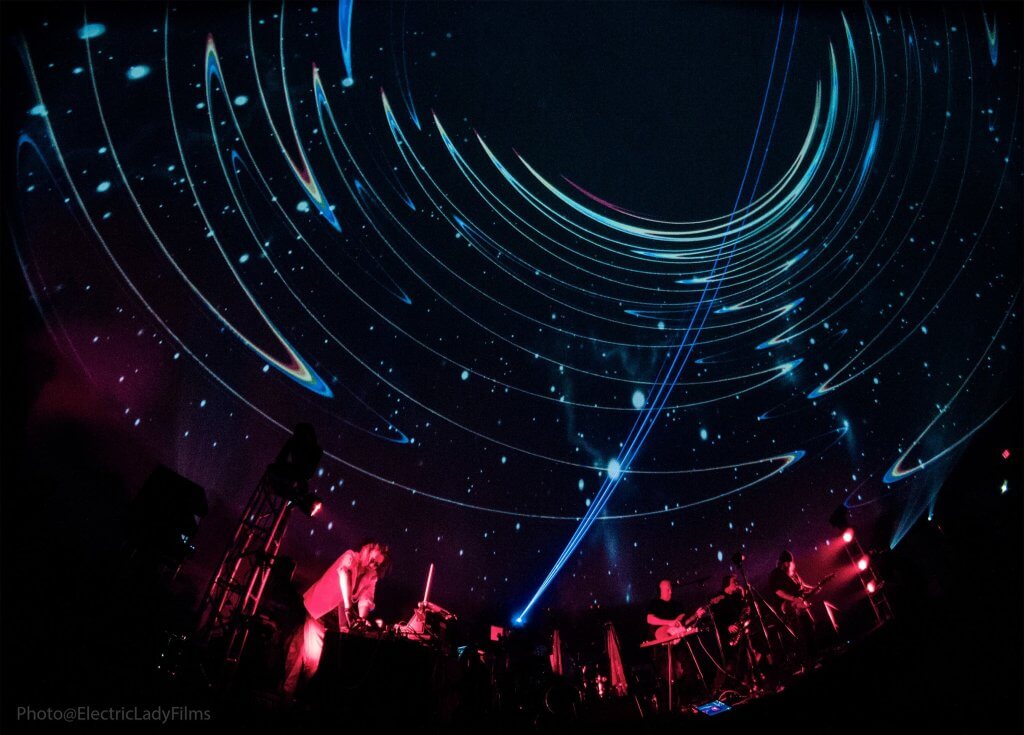
We’re also teaming up with different conferences to bring them this new form of circus. We’re trying to reinvent the conference and speaking space where we add more entertainment to the model. Conferences can often be kind of boring, so we’ll start bringing more comedians and musicians to events, tying everything together into one big and engaging show.
Something else we’re baking in with the pie is Pink Floyd: not just the live music but a whole exhibit that goes along with it. The idea is the minute you get your ticket the experience starts. Imagine for example — your ticket is like an old record cover and when you hold your phone against it, you get augmented reality right way. Then you walk through the exhibit dome where there’s a series of artworks and memorabilia that’s all tied to a storyline. That then takes you into the immersive experience where you actually watch the show.
It’s really the idea of creating a digital circus for today, where people can experience the very latest and greatest technology. It’s a playground for technology where individuals and organizations can experiment and test their products out for real in the marketplace.
That all sounds like something from a future universe! But then again, you’re talking to someone who doesn’t even know how to cut and paste.
We basically want to reinvent the entertainment space. We’re working on exciting new ways to generate revenue and make money in today’s and tomorrow’s new world.
It’ll all tied into creating an experiential base and then moving it all into a continuous audience-management content platform. Participants can receive not only premium content but subscription products that actually show up back home in the mail.
Once we have the whole new platform in place, we can start running different acts and different artists through it. It’s a pretty complex process but we see the value already of assembling a platform for artists to actually start using this new form of experience for their own businesses. That’s where we’re going.
So you might become everyone’s hero?
The main recipient of all this is the Harold Robinson Foundation. That’s something Harold Robinson that I, Norwood Fisher and a whole bunch of other musicians are building: a new music school in downtown Watts, right near Martha Middle School.
We’re going to bring those kids together and take them up into the camp. A lot of these kids never even get out of downtown LA. Never in their lives! Believe me, it’s really something to bring a couple hundred of them and their families together and once, and then add the music. The whole idea is that, whatever we bring into the project should help give back to enrich people’s lives. The purpose of the entire system is to create a win-win for everybody.
That’s a very cool concept.
What’s also interesting about this new model is that I’ve actually had people come to all 10 shows. It’s such a wild experience when you’re immersed into that world — feeling the 3-D around you even as you’re hearing the music. This brand new model is definitely the direction for the future. Our ticket prices are averaging roughly around $80, which is pretty good.
Was this originally your idea?
Yeah, pretty much my idea. I’ve been in the tech space for such a long time. I teach a thing called SPACE, which stands for: Story, Plan, Army Conversion and Education. I actually taught this at USC the year before. I used to lecture out there quite a bit. Then they asked me if I’d teach the class.
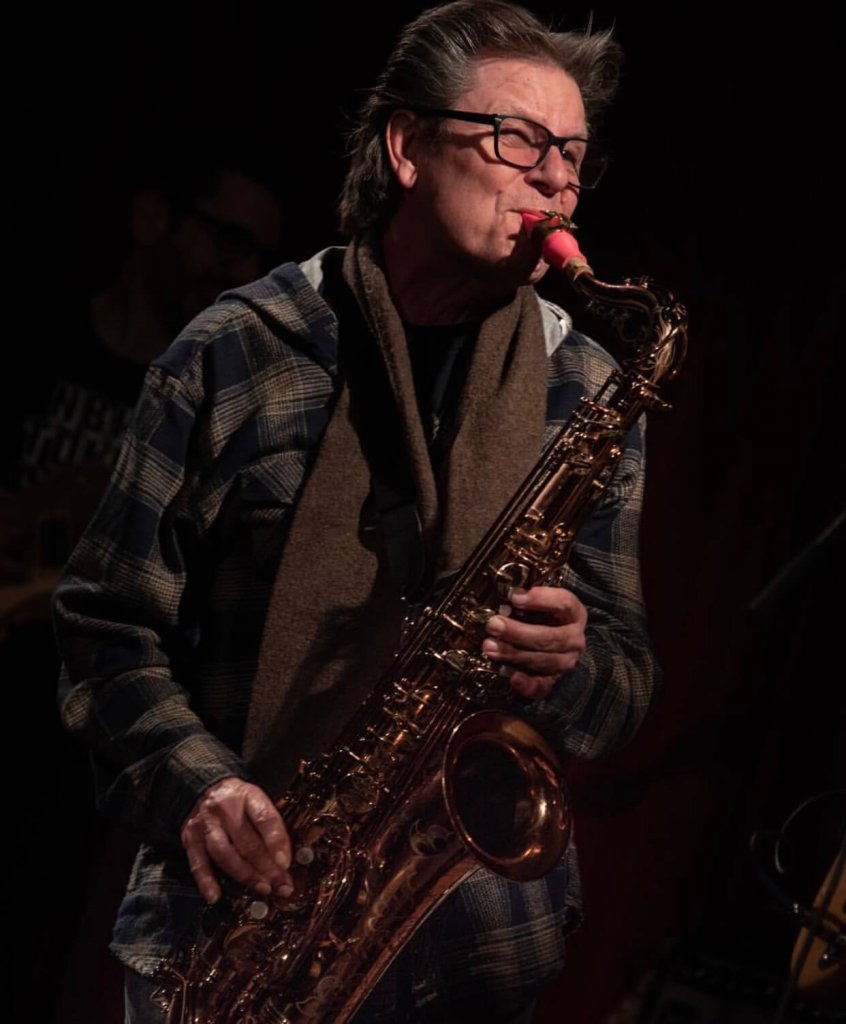
This is really the new business model for artists. It’s all about the story. The most important part of that is, it gives you the key word, the direction, that you can use to discover your audience. What’s incredible today is the ability to go out and connect with people as opposed to just throwing anything out there.
It starts with your Story which is important in the Plan. I use all these start-up principles, something for start-up companies. The Armies — all the influencers — build your team of people who really care. We know that the passionate super fan is actually where the dollars are.
We also know that through data analysis that an artist will generate maybe 50 percent of total revenue from just one to three percent of their audience. That’s the core. So how do you find that three percent which is your basic model?
The answer is based on the Thousand True Fans strategy. Meaning a true fan is someone who will spend $100 a year. If I have 1,000 fans who will spend $100 a year, there is my first $100,000!
It’s a totally different model from trying to go big from the start and getting your stuff out everywhere. This, instead, is much more about going small but being targeted. Strategy first! Build the repeatable profit around a smaller number of people … and only then, scale up. It’s a different game now. You have to realize that social media isn’t just a marketing vehicle any more. It’s actually your business. Whoever owns the audience wins.
Yeah!
We’re headlining a big festival in Budapest on July 30 and we are picking up a whole series of other dates. Looks like we’re going to Moscow, St. Petersburg and a lot of other places, too.
So that’s my story. I’ve been a technologist for many years, an artist and a musician … but I love being in the tech space. It’s kind of funny, in fact, because so many of the younger artists are actually far behind. You’d think they would know more being younger and being in the scene, but they really don’t understand a lot of what’s going on.
So it’s kind of nice being the old guy teaching new tricks to the newdogs!
It’s really hard for the new the artist.
Definitely. Because you can’t sell just music anymore. You’re not just an artist anymore: you’re really a media company. That’s what I try to tell them as artists: you’ve got to think like a star now. You’re an entrepreneur.
The first thing I ask an artist, is this a business or a hobby? If it’s a business, then you have to make money. You have to think of your fans as really your customers. And you have to understand how to convert people into paying customers.
Those are things you have to understand today if you’re going to be an artist. The first thing I ask an artist — and this usually throws them off – is, what problem are you solving? Because as an entrepreneur and as a business, it’s all about solving problems. There’s a whole new game in town.
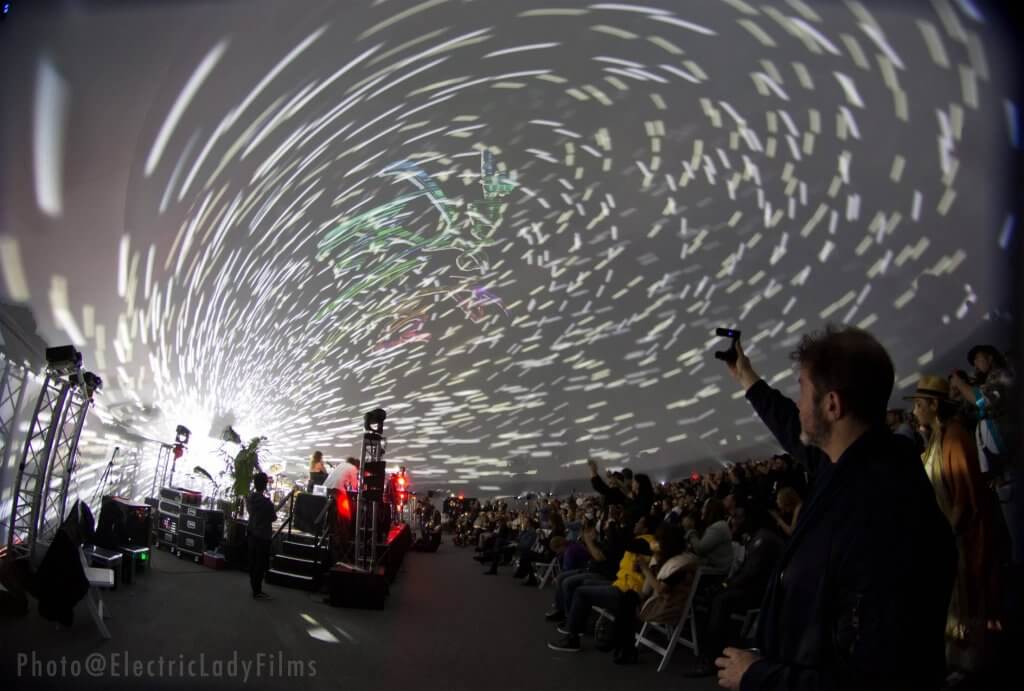
Artists seem not to know the reality of the music business.
No, it’s not in their DNA. That’s why it’s interesting for me because I’ve always loved business. I’d be on the road with Gilmore and Floyd and I would study. I thought if I was going to be on the road for two years, I’d take up business pretty heavily. I’d be reading all of these business books and Dave Gilmour would always ask me, “Hey, what are you reading?” I’d answer that I was going to build me a business.
Every time I left to go on the road, I was always already thinking: what will I do when the tour is over? When I’m back home! I always wanted to come home for a few days and step right into my next new thing. So I always knew exactly what I’d be doing two days later.
Bottom line: it was all about working to truly understand business. I love business, I love the whole concept of it. It’s fascinating to me!
Well I think it’s cool that you think with both sides of your brain.
It seems so natural. I guess I just have that DNA or something like that. My dad was a serial entrepreneur. So when I was growing up we had donut businesses, lighting businesses, candy businesses. I went through so many businesses on behalf of my dad, who’s also a musician. He was on the Lawrence Welk show; he was in that band.
I read somewhere that you also were on the Lawrence Welk show as a child?
It’s true. What’s funny about that is that my biggest claim to fame is I’m the only guy on the planet who’s played in Pink Floyd and Lawrence Welk!
For more information go to https://www.thinkexp.co
Follow Scott Page on Twitter @IAmScottPage



